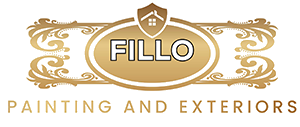 If you are unsatisfied with the way your home looks, you might be in a rush to take action and either paint your cladding yourself or hire a professional painter. The truth is that even a great paint job will eventually decline in beauty over time, showing cracks, chips, and fading, as well as other flaws that can make your home look unappealing. However, don’t rush to take a fresh coat of paint to your walls. After all, there’s one major step that significantly affects your success in applying a new coat of paint: priming. Professional painters in Atlanta, as well as amateurs to the brush, should know the importance of priming before painting.
If you are unsatisfied with the way your home looks, you might be in a rush to take action and either paint your cladding yourself or hire a professional painter. The truth is that even a great paint job will eventually decline in beauty over time, showing cracks, chips, and fading, as well as other flaws that can make your home look unappealing. However, don’t rush to take a fresh coat of paint to your walls. After all, there’s one major step that significantly affects your success in applying a new coat of paint: priming. Professional painters in Atlanta, as well as amateurs to the brush, should know the importance of priming before painting.
What Is Primer?
Most people have heard of primer but know little about it as a substance. Primer is a solution of synthetic resin, water or another solvent, additives, and sometimes polyethylene, a type of plastic. It’s typically sold in paint cans and packaging that resembles ordinary paint. It’s typically white and milky in appearance.
Primer is usually applied before painting a surface. If any steps precede priming, they are cleaning a dirty wall and repairing holes or cracks in the surface. Though there are different types of primer, professional painters tend to know which type of product to use, based on the condition of the surface and its material composition. Primer can even be tinted to match the final coat of paint, acting as both a preparation step and a first coat of paint.
The Benefits of Priming
Priming offers a number of amazing benefits, all of which add up to a better final result:
 -Primer helps paint adhere to a surface, preventing drips, cracks, and other flaws.
-Primer helps paint adhere to a surface, preventing drips, cracks, and other flaws.
-Primer decreases the amount of paint that needs to be applied to a surface, which is a benefit for painting contractors and their customers alike.
-Priming a surface covers a bold color choice like red and prevents it from showing through a new coat of paint.
-Primer gives painters a flat, even surface on which to paint, which gives the final paint job a smooth, elegant appearance.
-Primer also protects the original material, like natural wood, from paint, so that its original beauty is intact underneath. It also protects surfaces from moisture damage.
-Priming a surface prevents it from developing mold or mildew. Primer is a must for surfaces that will experience water exposure.
-Primer can also protect your outdoor cladding from sun damage. UV rays can cause paint to crack or warp if it’s not primed.
-Primer is relatively cheap, especially when compared to plasma activation, an alternative to priming surfaces.
Don’t worry about trying to figure out what type of primer to use and how to apply it. Simply hire painters in Atlanta to give your surfaces a new coat of paint. These professionals know exactly how primer works, and how to use it to maximum benefit.
